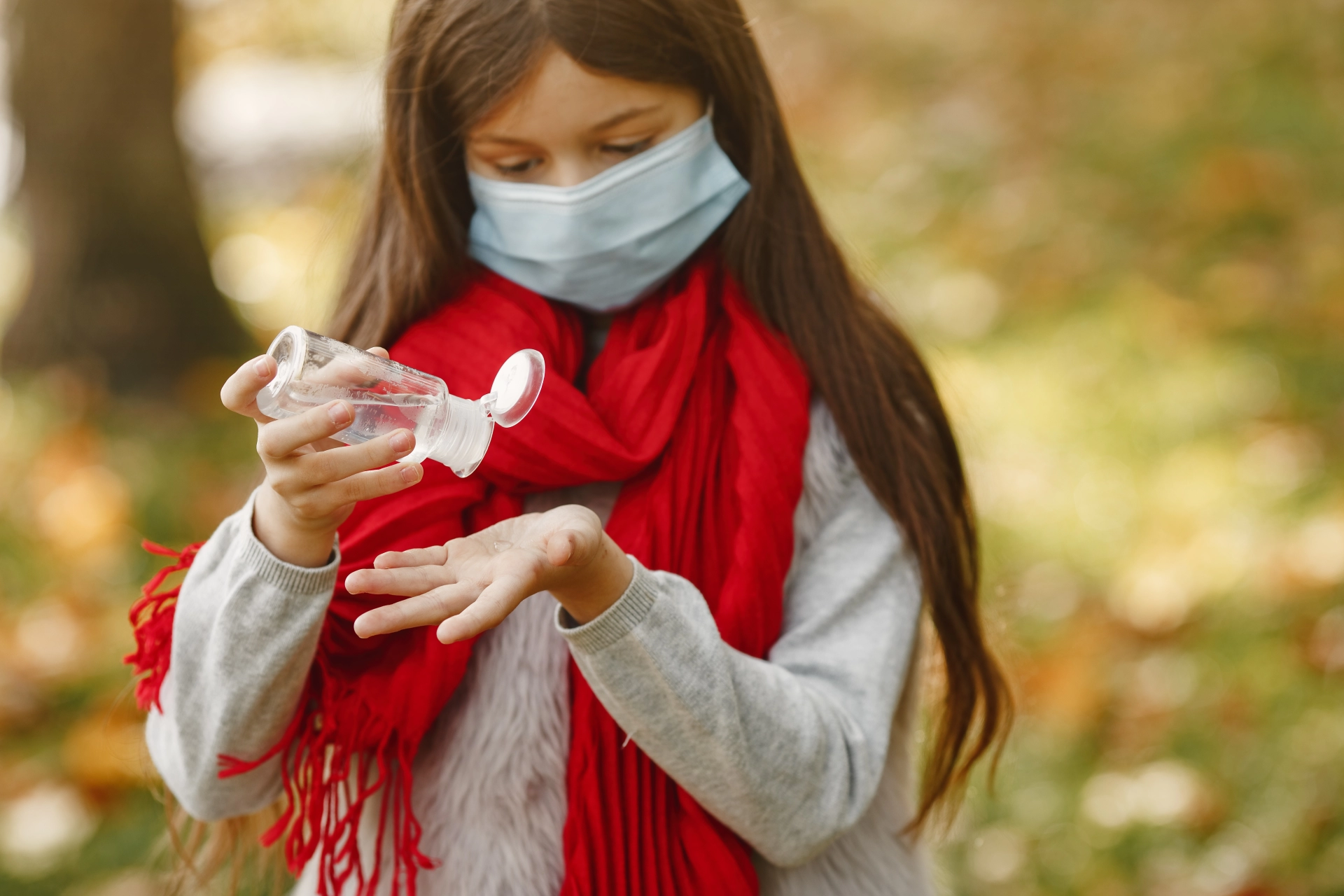With the beautiful autumn days and colors, upper respiratory tract infections or acute respiratory viral infections (ARVI) become more frequent. People often call them seasonal colds. Let’s understand together how children get infected with these viruses and what should be done to prevent them.
Upper respiratory tract infections are seasonal viral diseases transmitted by airborne droplets (coughing/sneezing on each other, touching household items/toys of an infected person, using the same dishes). These infections are self-limiting and usually start in autumn, continuing until late spring (or, as they say, along with the school year).
The main symptoms are:
• Sudden and frequent fever (38°C and above)
• Chills, shivering
• Headache, muscle pain, body aches
• Sore throat
• Cough
• Runny nose
• Sometimes vomiting or diarrhea
Respiratory viruses mainly affect the upper respiratory tract — the nasopharynx, throat, and trachea — but sometimes can also involve the bronchi. The illness usually lasts up to one week, sometimes a little longer.
What to do in case of viral infection
When a child gets infected, the main goal is to ease their condition and prevent complications.
• Offer plenty of fluids (water).
• Clean the nasal passages with saline solution (NaCl 0.9%) or sea salt sprays.
• In case of fever, give Acetaminophen (Paracetamol) or Ibuprofen (Nurofen) in syrup, suppository, or tablet form — according to age and weight, and only as prescribed by a pediatrician.
• Ensure constant room ventilation and maintain air humidity.
• In case of cough, honey can be useful for children over 1 year old (it is not allowed for younger ones due to the risk of botulism).
Important facts about medication
Ibuprofen should not be used for dehydrated or persistently vomiting children. Aspirin is prohibited under the age of 12. Antiviral suppositories (Viferon, Genferon) have no proven effectiveness and are often confused with fever reducers, which can be dangerous during high fever. The only antiviral medication with proven effect is Oseltamivir (Tamiflu), used in confirmed influenza cases, starting from the first day of illness and only by pediatric prescription.
When to seek immediate medical attention
If you notice that your child has:
• Frequent or labored breathing
• Cyanotic (bluish) lips
• Retractions between the ribs while breathing
• Chest pain
• Severe muscle pain causing refusal to walk
• Signs of dehydration (no urination for 8 hours or more, dry mouth, crying without tears)
• Weakness or lack of response
• Convulsions
• Persistent high fever (40°C and above)
• Age under 3 months
• Worsening or recurrence of symptoms after a few days
• Presence or exacerbation of chronic diseases (e.g. diabetes, asthma)
To prevent respiratory viral infections, it is important to teach children to wash their hands frequently (especially after returning home), eat healthy and balanced meals (with plenty of fruits and vegetables), avoid contact with sick individuals, and receive all vaccinations according to the national immunization schedule (including the seasonal flu vaccine).
Thus, follow and teach your children to maintain hygiene rules, eat healthy and varied food, have sufficient physical activity, and good sleep.






